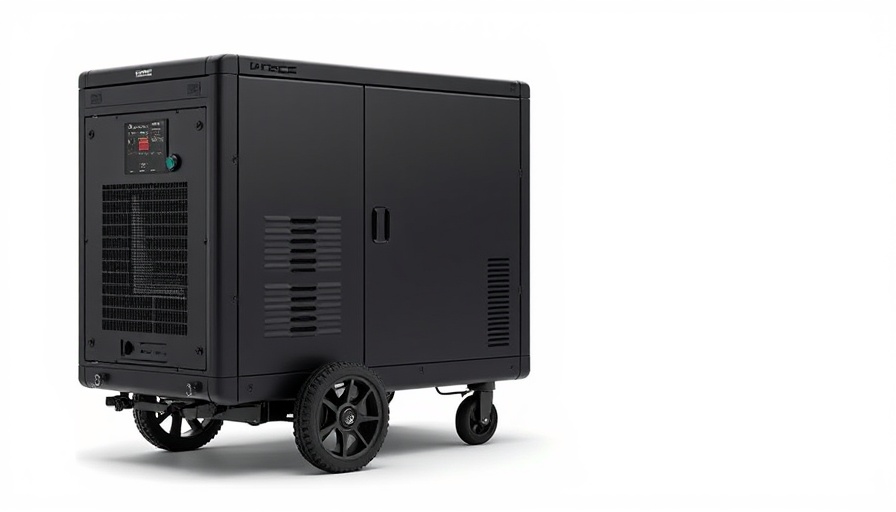
The Impact of Load Shedding on South Africa’s Economic Landscape
In recent months, South Africa has faced the harsh reality of intensified load shedding, a recurring predicament resulting from an overstressed energy grid. The implications of this disarray stretch far beyond mere inconveniences; they jeopardize economic stability and disrupt daily lives across the nation. Amid this crisis, Geewiz has emerged as a coherent voice, acknowledging the substantial surge in demand for backup power solutions, particularly inverters. What does this mean for the average South African, and how can they maintain productivity during these outages?
Understanding the Rising Demand for Inverters
As the specter of load shedding reappears, Geewiz has reported increased orders for inverter systems, which are considered vital for preserving household and business operations. Many South Africans who cannot afford or do not have access to solar resources are increasingly turning to alternative power sources—namely, inverters and battery backups. These devices serve as a stopgap, providing a critical lifeline to consumers trying to manage the disruptions caused by intermittent power supply.
The Broader Context: A Reflection on South Africa’s Energy Crisis
While the rise of inverters and battery backups appears to provide a sense of security, some experts caution about their overall efficacy in resolving South Africa's deeper energy issues. Residential inverter systems often rely on the national grid for recharging post-outage, inadvertently adding to the grid's already strained capacity. A troubling aspect, according to Dylan Schnetler from Rubicon, is that even though these backup systems appear to offer immediate relief, their increased demand may reverse the intended mitigation of load shedding objectives.
Policy Implications and Future Predictions
The reliance on inverters raises pressing questions regarding the need for systemic reform in how energy is managed in South Africa. With experts warning that solutions reliant on the national grid do not alleviate the energy crisis—rather they complicate it—there is an urgent requirement for policies that incentivize independent energy production like solar. Implementing mechanisms to restrict grid-sourced battery recharging could be one path to mitigating the adverse effects on local electrical capacity.
Unique Perspectives on Technology's Role
With an ever-evolving landscape, there is an imperative need for introspection within the technology sphere. Geewiz's response to the crisis illustrates a balanced approach leveraging innovative technology whilst also proclaiming the necessity of consumer education. It is not merely about providing inverters; consumers must be equipped with the understanding of responsible usage and limitations, particularly in managing grid interactions.
Ground Realities: The Consumer Experience
For many individuals and small enterprise owners, the anxiety stemming from potential power outages drastically impacts not only their productivity but their income streams. Inverters provide a necessary but temporary solution. For professionals navigating this landscape, understanding the intricacies of their energy usage can empower them to make informed decisions about their investments in power solutions.
The Path Forward: Change and Adaptation
As South Africa navigates through this ongoing energy crisis, companies like Geewiz play a pivotal role in ensuring that consumers have access to the technology needed to adapt to the changing energy landscape. However, reliance on temporary fixes must be offset by broader conversations regarding energy independence and sustainable practices that can alleviate pressure on the national grid.
This is an opportunity for national-level discussions to revisit and discuss policies surrounding energy generation and distribution. In harnessing collective wisdom, South Africa can pivot toward a path where energy independence is not just a luxury but a practical standard for all.
Call to Action
While solutions like inverters provide immediate relief in the wake of load shedding, it is imperative for consumers and businesses alike to advocate for systemic change. Engaging with policymakers to push for greater access to renewable energy options can pave the way for a more resilient energy future. Together, let’s call for a comprehensive policy review that fosters energy independence through sustainable practices!
 Add Row
Add Row  Add
Add 




Write A Comment